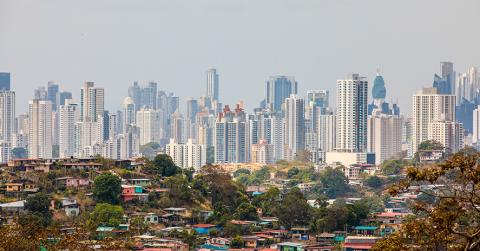More from UN DESA
Robust economic recovery is underway — for some

The past few months have brought a string of upbeat news on the global economy, suggesting a vigorous recovery from the COVID-19 crisis may be under way. But are these developments too good to be true?
World merchandise trade and industrial production have indeed soared and are already well above the pre-pandemic levels. Prices of key raw materials have reached record levels, with oil prices having climbed to a two-year high. Against this backdrop, macroeconomic forecasters have raised their global growth projections for 2021 and 2022 – often by a lot.
However, a look beneath the optimistic headline numbers reveals a much more worrisome picture. For one, the high 2021 growth projections are largely the global economy making up for last year’s unprecedented shock and do not necessarily signal a sustained upturn in economic activity. The challenge for countries emerging from the crisis will be to maintain a robust growth momentum going forward.
Secondly, and more importantly, the global recovery is projected to be highly uneven. Short- and medium-term growth prospects vary greatly due to disparities in vaccination progress, in the size and effectiveness of economic stimulus, and differences in economic structure.
While China and the United States are driving the global rebound, many developing countries, especially in sub-Saharan Africa and Latin America and the Caribbean, are not expected to recover to pre-pandemic output levels until at least 2022. Next year, the gross domestic product of one quarter of developing countries is expected to be over 10 per cent lower than their pre‑pandemic forecast.
This is cause for alarm. Even before the pandemic, economic development in many of these countries was slacking. Longer-term stagnation or decline in per capita incomes could spur social unrest and undermine sustainable development.
Global recovery efforts must be guided by the objective of preventing a growing cross-country divergence in economic fortunes. Stronger international cooperation should ensure more balanced and inclusive global growth during the recovery from COVID-19 and beyond. The list of policy needs is long, ranging from fairer and more equitable distribution of vaccines to addressing rising debt vulnerabilities, revitalizing the multilateral trading system, delivering on aid promises and reforming the global tax system.
Leaving no one behind is not only one of the core principles underpinning the 2030 Agenda for Sustainable Development – it should be a call for action guiding all our recovery efforts.
Learn more from the July Monthly Briefing, available at: http://voice.marketingbangkok.net/dpad/publication/world-economic-situation-and-prospects-july-2021-briefing-no-151/
Photo credit: UNDP/Panama
 Welcome to the United Nations
Welcome to the United Nations